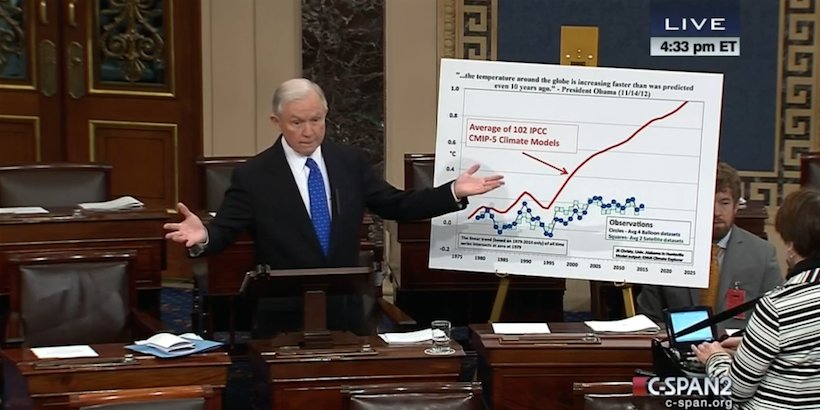
Last December, President Obama returned from Paris with a fresh international climate deal in hand. While liberal environmentalists rejoiced, analysis suggests the new restrictions could have a devastating impact on Alabama jobs.
Federal regulations from the Environmental Protection Agency (EPA) have already shown how costly such market-interference can be. Last year, Alabama Power closed three coal plants because of the burdensome cost of regulation compliance. In all, the company is reducing its number of coal units from 23 to 10 because of federal environmental mandates. “These regulations are forcing us to make costly changes in how we generate electricity for our customers,” said Matt Bowden, Alabama Power’s vice president of Environmental Affairs. “And there are more regulations coming.”
“Federal environmental mandates are forcing us to change how we generate electricity for our customers,” Bowden said in 2014. “They are putting new restrictions on our ability to provide our customers with the energy they need in a cost-effective manner.”
Another example of such impact is the Obama Administration’s Clean Power Plan, which the Supreme Court recently put on hold. The plan, which would be implemented by the EPA, would mandate a 750 million metric ton reduction in CO2 emissions through increased regulations on existing power plants, especially coal-fired plants.
A study released by the U.S. Chamber of Commerce last year predicts the environmental mandates in the plan would ultimately cost the United States more than 220,000 jobs.
According to the study, the proposed regulations will have a disproportionate impact on southern states, where energy costs would jump by $6.6 billion per year over the next decade-and-a-half. The “East-South-Central” region of Mississippi, Alabama, Tennessee and Kentucky would see its GDP shrink by an estimated $2.2 billion and would lose 21,400 jobs as a result of the plan.
The President’s Paris Climate accord would not only impact jobs, but it would alter the separation of powers laid out by the Constitution. Contrary to what the President says, his agreement is in fact a treaty: a document that requires ratification by the U.S. Senate.
Obama claims the Paris Agreement is not a treaty because America’s emissions-reduction commitments under it are “non-binding,” but history says that does not matter. For example, our emissions-reduction commitments under a previous Senate-ratified U.N. climate deal ((UNFCCC) are also non-binding, yet no one disputes that it is a treaty.
In a classic example of doublespeak, The administration readily admits that parts of the Agreement are indeed “binding”: the procedural (reporting and monitoring) commitments, just not the substantive (emission-reduction and climate finance) commitments. Additionally, the administration has also expressed willingness to honor “non-binding” elements of the agreement by turning them into binding domestic laws and regulations.
Historically, Presidents have engaged in similar behavior by performing acts known as Executive Agreements (EAs). However, the reason why EAs have been constitutionally permissible is because they can be unilaterally revoked by the next administration. The objectives from the Paris Agreement show that it is designed to be more permanent than precedent allows.
1. Deter the next president, future Congresses, and even courts from overturning the Environmental Protection Agency’s (EPA) so-called Clean Power Plan (CPP) and other climate regulations, including some not yet proposed, by rebranding those policies as “promises” America has made to the world.
2. Pressure future U.S. policy makers to make increasingly “ambitious” emission-reduction pledges—known as Intended Nationally Determined Contributions (INDCs)—every five years starting in 2020, implement those pledges via ever-more stringent regulations, and pony up untold billions in “climate finance”—foreign aid to subsidize “green energy” ventures in developing countries.
3. Make U.S. energy and climate policy increasingly unaccountable to Congress and to the American people, and increasingly beholden to the demands of foreign leaders, multilateral bureaucrats, international pressure groups, and their media allies.
Article II, Section 2 of the U.S. Constitution clearly states, “He [the President] shall have power, by and with the advice and consent of the Senate, to make treaties, provided two thirds of the Senators present concur.” The Paris Climate agreement has not met this legal threshold.
Congress, particularly the Senate, must more carefully guard its rightful power to be the primary driver of policy in the United States. If it fails to do so, Executive Orders and “Executive Agreements” will continue to make the legislative branch merely a ceremonial counterpart to an imperial presidency.











